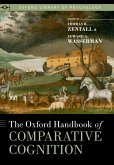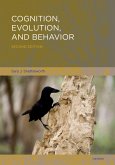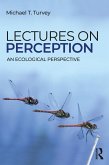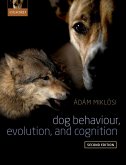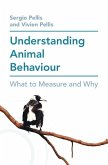Comparative Cognition (eBook, PDF)
Experimental Explorations of Animal Intelligence
Redaktion: Wasserman, Edward A.; Zentall, Thomas R.
52,95 €
52,95 €
inkl. MwSt.
Sofort per Download lieferbar

26 °P sammeln
52,95 €
Als Download kaufen

52,95 €
inkl. MwSt.
Sofort per Download lieferbar

26 °P sammeln
Jetzt verschenken
Alle Infos zum eBook verschenken
52,95 €
inkl. MwSt.
Sofort per Download lieferbar
Alle Infos zum eBook verschenken

26 °P sammeln
Comparative Cognition (eBook, PDF)
Experimental Explorations of Animal Intelligence
Redaktion: Wasserman, Edward A.; Zentall, Thomas R.
- Format: PDF
- Merkliste
- Auf die Merkliste
- Bewerten Bewerten
- Teilen
- Produkt teilen
- Produkterinnerung
- Produkterinnerung

Bitte loggen Sie sich zunächst in Ihr Kundenkonto ein oder registrieren Sie sich bei
bücher.de, um das eBook-Abo tolino select nutzen zu können.
Hier können Sie sich einloggen
Hier können Sie sich einloggen
Sie sind bereits eingeloggt. Klicken Sie auf 2. tolino select Abo, um fortzufahren.

Bitte loggen Sie sich zunächst in Ihr Kundenkonto ein oder registrieren Sie sich bei bücher.de, um das eBook-Abo tolino select nutzen zu können.
This volume celebrates comparative cognition's first quarter century with a state-of-the-art collection of chapters covering the broad realm of the scientific study of animal intelligence. Comparative Cognition will be an invaluable resource for students and professional researchers in all areas of psychology and neuroscience.
- Geräte: PC
- mit Kopierschutz
- eBook Hilfe
- Größe: 10.57MB
Andere Kunden interessierten sich auch für
![The Oxford Handbook of Comparative Cognition (eBook, PDF) The Oxford Handbook of Comparative Cognition (eBook, PDF)]() The Oxford Handbook of Comparative Cognition (eBook, PDF)157,95 €
The Oxford Handbook of Comparative Cognition (eBook, PDF)157,95 €![Cognition, Evolution, and Behavior (eBook, PDF) Cognition, Evolution, and Behavior (eBook, PDF)]() Sara J. ShettleworthCognition, Evolution, and Behavior (eBook, PDF)61,95 €
Sara J. ShettleworthCognition, Evolution, and Behavior (eBook, PDF)61,95 €![Lectures on Perception (eBook, PDF) Lectures on Perception (eBook, PDF)]() Michael T. TurveyLectures on Perception (eBook, PDF)64,95 €
Michael T. TurveyLectures on Perception (eBook, PDF)64,95 €![The Oxford Handbook of Comparative Evolutionary Psychology (eBook, PDF) The Oxford Handbook of Comparative Evolutionary Psychology (eBook, PDF)]() The Oxford Handbook of Comparative Evolutionary Psychology (eBook, PDF)136,95 €
The Oxford Handbook of Comparative Evolutionary Psychology (eBook, PDF)136,95 €![The Origins of Consciousness (eBook, PDF) The Origins of Consciousness (eBook, PDF)]() Giorgio VallortigaraThe Origins of Consciousness (eBook, PDF)40,95 €
Giorgio VallortigaraThe Origins of Consciousness (eBook, PDF)40,95 €![Dog Behaviour, Evolution, and Cognition (eBook, PDF) Dog Behaviour, Evolution, and Cognition (eBook, PDF)]() Adam MiklosiDog Behaviour, Evolution, and Cognition (eBook, PDF)42,95 €
Adam MiklosiDog Behaviour, Evolution, and Cognition (eBook, PDF)42,95 €![Understanding Animal Behaviour (eBook, PDF) Understanding Animal Behaviour (eBook, PDF)]() Sergio PellisUnderstanding Animal Behaviour (eBook, PDF)21,95 €
Sergio PellisUnderstanding Animal Behaviour (eBook, PDF)21,95 €-
-
-
This volume celebrates comparative cognition's first quarter century with a state-of-the-art collection of chapters covering the broad realm of the scientific study of animal intelligence. Comparative Cognition will be an invaluable resource for students and professional researchers in all areas of psychology and neuroscience.
Dieser Download kann aus rechtlichen Gründen nur mit Rechnungsadresse in A, B, BG, CY, CZ, D, DK, EW, E, FIN, F, GR, HR, H, IRL, I, LT, L, LR, M, NL, PL, P, R, S, SLO, SK ausgeliefert werden.
Produktdetails
- Produktdetails
- Verlag: OUP eBook
- Erscheinungstermin: 8. April 2009
- Englisch
- ISBN-13: 9780199703401
- Artikelnr.: 38131659
- Verlag: OUP eBook
- Erscheinungstermin: 8. April 2009
- Englisch
- ISBN-13: 9780199703401
- Artikelnr.: 38131659
- Herstellerkennzeichnung Die Herstellerinformationen sind derzeit nicht verfügbar.
Edward A. Wasserman earned his B.A. at UCLA and his Ph.D. at Indiana University. He is now Stuit Professor of Experimental Psychology at the University of Iowa. Thomas R. Zentall earned his B.S. degree in psychology, his B.E.E. in Electrical Engineering from Union College in 1963, and his Ph.D. from the University of California at Berkeley in 1969. After an appointment at the University of Pittsburgh, he joined the faculty at the University of Kentucky, where he is now Professor of Psychology.
* Introduction
* Comparative Cognition: A Natural Science Approach to the Study of
Animal Intelligence, Edward A. Wasserman and Thomas R. Zentall
* I. Perception and Illusion
* 1: Grouping and Segmentation of Visual Objects by Baboons (Papio
papio) and Humans (Homo sapiens), Joël Fagot and Isabelle Barbet
* 2: Seeing What Is Not There: Illusion, Completion, and
Spatio-Temporal Boundary Formation in Comparative Perspective, Kazuo
Fujita
* 3: The Cognitive Chicken: Visual and Spatial Cognition in a
Non-Mammalian Brain, Giorgio Vallortigara
* 4: The Comparative Psychology of Absolute Pitch, Ronald G. Weisman,
Mitchel T. Williams, Jerome S. Cohen, Milan G. Njegovan, and
Christopher B. Sturdy
* II. Attention and Search
* 5: Reaction-Time Explorations of Visual Perception, Attention, and
Decision in Pigeons, Donald S. Blough
* 6: Selective Attention, Priming, and Foraging Behavior, Alan C. Kamil
and Alan B. Bond
* 7: Attention as it is Manifest across Species, David A. Washburn and
Lauren A. Taglialatela
* III. Memory Processes
* 8: The Questions of Temporal and Spatial Displacement in Animal
Cognition, William A. Roberts
* 9: Memory Processing, Anthony A. Wright
* IV. Spatial Cognition
* 10: Arthropod Navigation: Ants, Bees, Crabs, Spiders Finding Their
Way, Ken Cheng
* 11: Comparative Spatial Cognition: Processes in Landmark and
Surface-Based Place Finding, Marcia L. Spetch and Debbie M. Kelly
* 12: Properties of Time-Place Learning, Donald M. Wilkie and Christina
M. Thorpe
* V. Timing and Counting
* 13: Behavioristic, Cognitive, Biological, and Quantitative
Explanations of Timing, Russell M. Church
* 14: Sensitivity to Time: Implications for the Representation of Time,
Jonathon D. Crystal
* 15: Time and Number: Learning, Psychophysics, Stimulus Control, and
Retention, J. Gregor Fetterman
* VI. Conceptualization and Categorization
* 16: Relational Discrimination Learning in Pigeons, Robert G. Cook and
Edward A. Wasserman
* 17: A Modified Feature Theory as an Account of Pigeon Visual
Categorization, Ludwig Huber and Ulrike Aust
* 18: Category Structure and Typicality Effects, Masako Jitsumori
* 19: Similarity and Difference in the Conceptual Systems of Primates:
The Unobservability Hypothesis, Jennifer Vonk and Daniel J. Povinelli
* 20: Rule Learning, Memorization Strategies, Switching Attention
Between Local and Global Levels of Perception, and Optimality in
Avian Visual Categorization, Charles P. Shimp, Walter T. Herbranson,
Thane Fremouw, Alyson L. Froehlich
* 21: Responses and Acquired Equivalence Classes, Peter J. Urcuioli
* VII. Pattern Learning
* 22: Spatial Patterns: Behavioral Control and Cognitive
Representation, Michael F. Brown
* 23: The Structure of Sequential Behavior, Stephen B. Fountain
* 24: Truly Random Operant Responding: Results and Reasons, Greg
Jensen, Claire Miller, and Allen Neuringer
* 25: The Simultaneous Chain: A New Look at Serially Organized
Behavior, Herbert S. Terrace
* VIII. Tool Fabrication and Use
* 26: Cognitive Adaptations for Tool-Related Behaviour in New
Caledonian Crows, Alex Kacelnik, Jackie Chappell, Ben Kenward, and
Alex A. S. Weir
* 27: What is Challenging About Tool Use? The Capuchin's Perspective,
Elisabetta Visalberghi and Dorothy Fragaszy
* IX. Problem Solving and Behavioral Flexibility
* 28: Intelligences and Brains: An Evolutionary Bird's Eye View, Juan
D. Delius and Julia A. M. Delius
* 29: How Do Dolphins Solve Problems?, Stan A. Kuczaj II and Rachel
Thames Walker
* 30: The Comparative Cognition of Caching, S. R. de Kort, S. Tebbich,
J. M. Dally, N. J. Emery, and N. S. Clayton
* 31: The Neural Basis of Cognitive Flexibility in Birds, Shigeru
Watanabe
* X. Social Cognition Processes
* 32: Chimpanzee Social Cognition in Early Life:
Comparative-Developmental Perspective, Masaki Tomonaga, Masako
Myowa-Yamakoshi, Yuu Mizuno, Sanae Okamoto, Masami K. Yamaguchi,
Daisuke Kosugi, Kim A. Bard, Masayuki Tanaka, and Tetsuro Matsuzawa
* 33: Stimuli Signaling Rewards that Follow a Less Preferred Event are
Themselves Preferred: Implications for Cognitive Dissonance, Thomas
R. Zentall, Tricia S. Clement, Andrea M. Friedrich, and Kelly A.
DiGian
* Epilogue:
* Postscript: An Essay on the Study of Cognition in Animals Stewart M.
Hulse
* Comparative Cognition: A Natural Science Approach to the Study of
Animal Intelligence, Edward A. Wasserman and Thomas R. Zentall
* I. Perception and Illusion
* 1: Grouping and Segmentation of Visual Objects by Baboons (Papio
papio) and Humans (Homo sapiens), Joël Fagot and Isabelle Barbet
* 2: Seeing What Is Not There: Illusion, Completion, and
Spatio-Temporal Boundary Formation in Comparative Perspective, Kazuo
Fujita
* 3: The Cognitive Chicken: Visual and Spatial Cognition in a
Non-Mammalian Brain, Giorgio Vallortigara
* 4: The Comparative Psychology of Absolute Pitch, Ronald G. Weisman,
Mitchel T. Williams, Jerome S. Cohen, Milan G. Njegovan, and
Christopher B. Sturdy
* II. Attention and Search
* 5: Reaction-Time Explorations of Visual Perception, Attention, and
Decision in Pigeons, Donald S. Blough
* 6: Selective Attention, Priming, and Foraging Behavior, Alan C. Kamil
and Alan B. Bond
* 7: Attention as it is Manifest across Species, David A. Washburn and
Lauren A. Taglialatela
* III. Memory Processes
* 8: The Questions of Temporal and Spatial Displacement in Animal
Cognition, William A. Roberts
* 9: Memory Processing, Anthony A. Wright
* IV. Spatial Cognition
* 10: Arthropod Navigation: Ants, Bees, Crabs, Spiders Finding Their
Way, Ken Cheng
* 11: Comparative Spatial Cognition: Processes in Landmark and
Surface-Based Place Finding, Marcia L. Spetch and Debbie M. Kelly
* 12: Properties of Time-Place Learning, Donald M. Wilkie and Christina
M. Thorpe
* V. Timing and Counting
* 13: Behavioristic, Cognitive, Biological, and Quantitative
Explanations of Timing, Russell M. Church
* 14: Sensitivity to Time: Implications for the Representation of Time,
Jonathon D. Crystal
* 15: Time and Number: Learning, Psychophysics, Stimulus Control, and
Retention, J. Gregor Fetterman
* VI. Conceptualization and Categorization
* 16: Relational Discrimination Learning in Pigeons, Robert G. Cook and
Edward A. Wasserman
* 17: A Modified Feature Theory as an Account of Pigeon Visual
Categorization, Ludwig Huber and Ulrike Aust
* 18: Category Structure and Typicality Effects, Masako Jitsumori
* 19: Similarity and Difference in the Conceptual Systems of Primates:
The Unobservability Hypothesis, Jennifer Vonk and Daniel J. Povinelli
* 20: Rule Learning, Memorization Strategies, Switching Attention
Between Local and Global Levels of Perception, and Optimality in
Avian Visual Categorization, Charles P. Shimp, Walter T. Herbranson,
Thane Fremouw, Alyson L. Froehlich
* 21: Responses and Acquired Equivalence Classes, Peter J. Urcuioli
* VII. Pattern Learning
* 22: Spatial Patterns: Behavioral Control and Cognitive
Representation, Michael F. Brown
* 23: The Structure of Sequential Behavior, Stephen B. Fountain
* 24: Truly Random Operant Responding: Results and Reasons, Greg
Jensen, Claire Miller, and Allen Neuringer
* 25: The Simultaneous Chain: A New Look at Serially Organized
Behavior, Herbert S. Terrace
* VIII. Tool Fabrication and Use
* 26: Cognitive Adaptations for Tool-Related Behaviour in New
Caledonian Crows, Alex Kacelnik, Jackie Chappell, Ben Kenward, and
Alex A. S. Weir
* 27: What is Challenging About Tool Use? The Capuchin's Perspective,
Elisabetta Visalberghi and Dorothy Fragaszy
* IX. Problem Solving and Behavioral Flexibility
* 28: Intelligences and Brains: An Evolutionary Bird's Eye View, Juan
D. Delius and Julia A. M. Delius
* 29: How Do Dolphins Solve Problems?, Stan A. Kuczaj II and Rachel
Thames Walker
* 30: The Comparative Cognition of Caching, S. R. de Kort, S. Tebbich,
J. M. Dally, N. J. Emery, and N. S. Clayton
* 31: The Neural Basis of Cognitive Flexibility in Birds, Shigeru
Watanabe
* X. Social Cognition Processes
* 32: Chimpanzee Social Cognition in Early Life:
Comparative-Developmental Perspective, Masaki Tomonaga, Masako
Myowa-Yamakoshi, Yuu Mizuno, Sanae Okamoto, Masami K. Yamaguchi,
Daisuke Kosugi, Kim A. Bard, Masayuki Tanaka, and Tetsuro Matsuzawa
* 33: Stimuli Signaling Rewards that Follow a Less Preferred Event are
Themselves Preferred: Implications for Cognitive Dissonance, Thomas
R. Zentall, Tricia S. Clement, Andrea M. Friedrich, and Kelly A.
DiGian
* Epilogue:
* Postscript: An Essay on the Study of Cognition in Animals Stewart M.
Hulse
* Introduction
* Comparative Cognition: A Natural Science Approach to the Study of
Animal Intelligence, Edward A. Wasserman and Thomas R. Zentall
* I. Perception and Illusion
* 1: Grouping and Segmentation of Visual Objects by Baboons (Papio
papio) and Humans (Homo sapiens), Joël Fagot and Isabelle Barbet
* 2: Seeing What Is Not There: Illusion, Completion, and
Spatio-Temporal Boundary Formation in Comparative Perspective, Kazuo
Fujita
* 3: The Cognitive Chicken: Visual and Spatial Cognition in a
Non-Mammalian Brain, Giorgio Vallortigara
* 4: The Comparative Psychology of Absolute Pitch, Ronald G. Weisman,
Mitchel T. Williams, Jerome S. Cohen, Milan G. Njegovan, and
Christopher B. Sturdy
* II. Attention and Search
* 5: Reaction-Time Explorations of Visual Perception, Attention, and
Decision in Pigeons, Donald S. Blough
* 6: Selective Attention, Priming, and Foraging Behavior, Alan C. Kamil
and Alan B. Bond
* 7: Attention as it is Manifest across Species, David A. Washburn and
Lauren A. Taglialatela
* III. Memory Processes
* 8: The Questions of Temporal and Spatial Displacement in Animal
Cognition, William A. Roberts
* 9: Memory Processing, Anthony A. Wright
* IV. Spatial Cognition
* 10: Arthropod Navigation: Ants, Bees, Crabs, Spiders Finding Their
Way, Ken Cheng
* 11: Comparative Spatial Cognition: Processes in Landmark and
Surface-Based Place Finding, Marcia L. Spetch and Debbie M. Kelly
* 12: Properties of Time-Place Learning, Donald M. Wilkie and Christina
M. Thorpe
* V. Timing and Counting
* 13: Behavioristic, Cognitive, Biological, and Quantitative
Explanations of Timing, Russell M. Church
* 14: Sensitivity to Time: Implications for the Representation of Time,
Jonathon D. Crystal
* 15: Time and Number: Learning, Psychophysics, Stimulus Control, and
Retention, J. Gregor Fetterman
* VI. Conceptualization and Categorization
* 16: Relational Discrimination Learning in Pigeons, Robert G. Cook and
Edward A. Wasserman
* 17: A Modified Feature Theory as an Account of Pigeon Visual
Categorization, Ludwig Huber and Ulrike Aust
* 18: Category Structure and Typicality Effects, Masako Jitsumori
* 19: Similarity and Difference in the Conceptual Systems of Primates:
The Unobservability Hypothesis, Jennifer Vonk and Daniel J. Povinelli
* 20: Rule Learning, Memorization Strategies, Switching Attention
Between Local and Global Levels of Perception, and Optimality in
Avian Visual Categorization, Charles P. Shimp, Walter T. Herbranson,
Thane Fremouw, Alyson L. Froehlich
* 21: Responses and Acquired Equivalence Classes, Peter J. Urcuioli
* VII. Pattern Learning
* 22: Spatial Patterns: Behavioral Control and Cognitive
Representation, Michael F. Brown
* 23: The Structure of Sequential Behavior, Stephen B. Fountain
* 24: Truly Random Operant Responding: Results and Reasons, Greg
Jensen, Claire Miller, and Allen Neuringer
* 25: The Simultaneous Chain: A New Look at Serially Organized
Behavior, Herbert S. Terrace
* VIII. Tool Fabrication and Use
* 26: Cognitive Adaptations for Tool-Related Behaviour in New
Caledonian Crows, Alex Kacelnik, Jackie Chappell, Ben Kenward, and
Alex A. S. Weir
* 27: What is Challenging About Tool Use? The Capuchin's Perspective,
Elisabetta Visalberghi and Dorothy Fragaszy
* IX. Problem Solving and Behavioral Flexibility
* 28: Intelligences and Brains: An Evolutionary Bird's Eye View, Juan
D. Delius and Julia A. M. Delius
* 29: How Do Dolphins Solve Problems?, Stan A. Kuczaj II and Rachel
Thames Walker
* 30: The Comparative Cognition of Caching, S. R. de Kort, S. Tebbich,
J. M. Dally, N. J. Emery, and N. S. Clayton
* 31: The Neural Basis of Cognitive Flexibility in Birds, Shigeru
Watanabe
* X. Social Cognition Processes
* 32: Chimpanzee Social Cognition in Early Life:
Comparative-Developmental Perspective, Masaki Tomonaga, Masako
Myowa-Yamakoshi, Yuu Mizuno, Sanae Okamoto, Masami K. Yamaguchi,
Daisuke Kosugi, Kim A. Bard, Masayuki Tanaka, and Tetsuro Matsuzawa
* 33: Stimuli Signaling Rewards that Follow a Less Preferred Event are
Themselves Preferred: Implications for Cognitive Dissonance, Thomas
R. Zentall, Tricia S. Clement, Andrea M. Friedrich, and Kelly A.
DiGian
* Epilogue:
* Postscript: An Essay on the Study of Cognition in Animals Stewart M.
Hulse
* Comparative Cognition: A Natural Science Approach to the Study of
Animal Intelligence, Edward A. Wasserman and Thomas R. Zentall
* I. Perception and Illusion
* 1: Grouping and Segmentation of Visual Objects by Baboons (Papio
papio) and Humans (Homo sapiens), Joël Fagot and Isabelle Barbet
* 2: Seeing What Is Not There: Illusion, Completion, and
Spatio-Temporal Boundary Formation in Comparative Perspective, Kazuo
Fujita
* 3: The Cognitive Chicken: Visual and Spatial Cognition in a
Non-Mammalian Brain, Giorgio Vallortigara
* 4: The Comparative Psychology of Absolute Pitch, Ronald G. Weisman,
Mitchel T. Williams, Jerome S. Cohen, Milan G. Njegovan, and
Christopher B. Sturdy
* II. Attention and Search
* 5: Reaction-Time Explorations of Visual Perception, Attention, and
Decision in Pigeons, Donald S. Blough
* 6: Selective Attention, Priming, and Foraging Behavior, Alan C. Kamil
and Alan B. Bond
* 7: Attention as it is Manifest across Species, David A. Washburn and
Lauren A. Taglialatela
* III. Memory Processes
* 8: The Questions of Temporal and Spatial Displacement in Animal
Cognition, William A. Roberts
* 9: Memory Processing, Anthony A. Wright
* IV. Spatial Cognition
* 10: Arthropod Navigation: Ants, Bees, Crabs, Spiders Finding Their
Way, Ken Cheng
* 11: Comparative Spatial Cognition: Processes in Landmark and
Surface-Based Place Finding, Marcia L. Spetch and Debbie M. Kelly
* 12: Properties of Time-Place Learning, Donald M. Wilkie and Christina
M. Thorpe
* V. Timing and Counting
* 13: Behavioristic, Cognitive, Biological, and Quantitative
Explanations of Timing, Russell M. Church
* 14: Sensitivity to Time: Implications for the Representation of Time,
Jonathon D. Crystal
* 15: Time and Number: Learning, Psychophysics, Stimulus Control, and
Retention, J. Gregor Fetterman
* VI. Conceptualization and Categorization
* 16: Relational Discrimination Learning in Pigeons, Robert G. Cook and
Edward A. Wasserman
* 17: A Modified Feature Theory as an Account of Pigeon Visual
Categorization, Ludwig Huber and Ulrike Aust
* 18: Category Structure and Typicality Effects, Masako Jitsumori
* 19: Similarity and Difference in the Conceptual Systems of Primates:
The Unobservability Hypothesis, Jennifer Vonk and Daniel J. Povinelli
* 20: Rule Learning, Memorization Strategies, Switching Attention
Between Local and Global Levels of Perception, and Optimality in
Avian Visual Categorization, Charles P. Shimp, Walter T. Herbranson,
Thane Fremouw, Alyson L. Froehlich
* 21: Responses and Acquired Equivalence Classes, Peter J. Urcuioli
* VII. Pattern Learning
* 22: Spatial Patterns: Behavioral Control and Cognitive
Representation, Michael F. Brown
* 23: The Structure of Sequential Behavior, Stephen B. Fountain
* 24: Truly Random Operant Responding: Results and Reasons, Greg
Jensen, Claire Miller, and Allen Neuringer
* 25: The Simultaneous Chain: A New Look at Serially Organized
Behavior, Herbert S. Terrace
* VIII. Tool Fabrication and Use
* 26: Cognitive Adaptations for Tool-Related Behaviour in New
Caledonian Crows, Alex Kacelnik, Jackie Chappell, Ben Kenward, and
Alex A. S. Weir
* 27: What is Challenging About Tool Use? The Capuchin's Perspective,
Elisabetta Visalberghi and Dorothy Fragaszy
* IX. Problem Solving and Behavioral Flexibility
* 28: Intelligences and Brains: An Evolutionary Bird's Eye View, Juan
D. Delius and Julia A. M. Delius
* 29: How Do Dolphins Solve Problems?, Stan A. Kuczaj II and Rachel
Thames Walker
* 30: The Comparative Cognition of Caching, S. R. de Kort, S. Tebbich,
J. M. Dally, N. J. Emery, and N. S. Clayton
* 31: The Neural Basis of Cognitive Flexibility in Birds, Shigeru
Watanabe
* X. Social Cognition Processes
* 32: Chimpanzee Social Cognition in Early Life:
Comparative-Developmental Perspective, Masaki Tomonaga, Masako
Myowa-Yamakoshi, Yuu Mizuno, Sanae Okamoto, Masami K. Yamaguchi,
Daisuke Kosugi, Kim A. Bard, Masayuki Tanaka, and Tetsuro Matsuzawa
* 33: Stimuli Signaling Rewards that Follow a Less Preferred Event are
Themselves Preferred: Implications for Cognitive Dissonance, Thomas
R. Zentall, Tricia S. Clement, Andrea M. Friedrich, and Kelly A.
DiGian
* Epilogue:
* Postscript: An Essay on the Study of Cognition in Animals Stewart M.
Hulse

